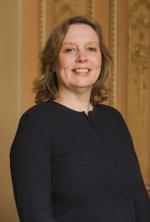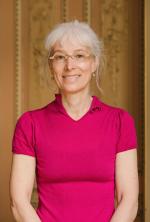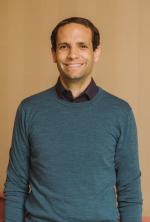
European Holocaust Research Infrastructure
To this end, EHRI brings together the most important Holocaust collection holders and research institutions as well as specialists in the digital humanities. Since its beginning, EHRI has been coordinated by the NIOD Institute for War, Holocaust and Genocide Studies, Amsterdam.
On 20th January 2025, EHRI was legally established as a permanent European organisation in the form of a distributed European Research Infrastructure Consortium (ERIC). An ERIC is a full juridical person under European Union Law with the objective of establishing and operating a research infrastructure of trans-national importance. EHRI-ERIC was founded by ten member countries, Austria, Croatia, Czechia, Germany, Israel, Poland, Romania, Slovakia, the Netherlands, and the United Kingdom. At the same time, Belgium is on track to join EHRI as member country in the near future, and conversations are underway in several other countries to secure their commitment and long-term support. EHRI-ERIC is an open organisation, seeking involvement from additional research institutions, funding bodies and national ministries.
Vision and mission of EHRI
The vision of EHRI is to secure seamless access to all sources and expertise from across Europe and beyond that are relevant to the study of the Holocaust. EHRI thereby highlights the relevance of Holocaust research for free and open societies with shared democratic values.
Since its inception in 2010, EHRI has approached this vision by overcoming the geographical fragmentation of sources and expertise and by setting standards for excellence in transnational Holocaust research, documentation, education and remembrance. As such, it continually develops and maintains a distributed, digital and human infrastructure that provides access to archival resources and services to a diverse community.
In addition to providing comprehensive research services, EHRI also pursues a social mission. Through its dissemination and outreach activities, it plays a vital role in the fight against Holocaust denial and distortion, racism and antisemitism, and ensures that Holocaust research keeps on informing a societal discourse on issues such as tolerance, cultural diversity and human rights.
Digital and in-person tools
EHRI has developed a range of digital and in-person tools and services to implement this vision.
The EHRI Virtual Observatory is an expanding integrated online platform that provides free, online access to:
- Information about dispersed collection holding institutions and their collections via the EHRI Online Portal;
- Scholarly digital editions of Holocaust sources via the EHRI Edition Platform;
- Visualisation, enhancement and contextualisation of Holocaust sources via the EHRI Document Blog;
- Data about Holocaust-related places and spaces via the EHRI Geospatial Repository;
- Self-study and guided training on Holocaust sources and their interpretation via the EHRI Massive Open Online Course and the EHRI Online Training Course;
- An open-access Bibliography of Photography and the Holocaust, with more than 1000 references to relevant articles.
The Conny Kristel Fellowship Programme is a competitive scheme that provides researchers, collection specialists and other users trans-national in-person access to the sources and expertise available at the most important Holocaust-relevant collection holding institutions in Europe, Israel and the United States.
Trans-national training seminars and methodological workshops offer extensive training and networking opportunities to researchers, collections specialists and other users at different career stages and facilitate the exploration of innovative digital methodologies.
Governance structure of EHRI-ERIC
EHRI was implemented as an European Research Infrastructure Consortium (ERIC). An ERIC is a consortium of states (EU member states, associated countries and third countries). These states, represented by ministries or national research funds, are the Members and Observers of an ERIC and form its General Assembly, the decision-making body. Institutions situated in a country which is not a Member or Observer can opt to participate as a cooperating partner.
EHRI-ERIC was set up as a distributed research infrastructure, consisting of a Central Hub and linked National Nodes.
The Central Hub, located in the Netherlands, is the coordinating layer of the ERIC and is represented by the Director, supported by a Central Office. The EHRI Central Office is located at the NIOD Institute for War, Holocaust and Genocide Studies in Amsterdam.
Each member or observer of the ERIC commits to set up a National Node, a consortium of research institutions, archives, museums, libraries and memory institutions with relevant expertise. These National Nodes advance EHRI’s mission at the national level. They are anchored in EHRI-ERIC’s governance through their representation in the National Coordinators Committee.
In order to guarantee high quality standards, an Advisory Board monitors and evaluates the activities of EHRI-ERIC.
More info: www.ehri-project.eu
Team composition






Cooperation: Currently, EHRI has 10 member countries or national nodes, comprising over 40 research institutions, libraries, archives and memorials, listed here.